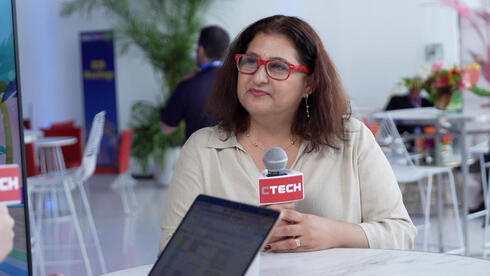
CTalk
How DNA can be used to alter personalities and train employees
Dr. Idit Maya, Head of the Genomic School at Beilinson Hospital, spoke to CTech at Calcalist and Bank Leumi’s Tech & Invest conference in Miami about the business application of new research on complex personality traits.
Dr. Idit Maya
(Photo: Go-Live )
Can a person’s DNA be altered to change their personality? According to the Head of the Genomic School at Beilinson Hospital Dr. Idit Maya, the answer is yes.
“When we’re talking about personality, for many years we thought this wasn’t biology - we called it complex inheritance. But, in the last few years, after we understood the DNA sequence, we can [now] understand how groups of proteins are used in the brain in different areas. For example, if I want to talk to you in front of a camera, I need to use different proteins than to fly a plane or as a physician,” said Dr. Maya in conversation with CTech at Calcalist and Bank Leumi’s Tech & Invest conference in Miami.
A medical genetics professor, Maya says that recent developments in research regarding complex personality traits has changed our understanding of how a person’s biology can be altered by stimulating or focusing on particular proteins in the brain. “Usually we look at DNA as though it's fixed; this is me, these are my qualities, these are my personality traits,” says Maya. “But actually you can change and influence them.”
She says that this research holds vast implications for hiring and training practices in the business world. “In the future it will be part of the business world and our day-to-day life even at schools or universities. We can learn and see which proteins my brain is using in which stages of my career,” says Maya. “And not now, but in the future, we can teach employees how to use specific proteins.”
Employers could give employees “biological tools” to learn or improve skills in a better and faster way, Maya says. “If you want your employees to be innovative, good at negotiations or speaking in front of an audience, now we understand that this requires a group of proteins working in a specific place in the brain. Now we understand that our cells are flexible. We can choose which proteins to use.”
You can watch the full interview in the video above.
















